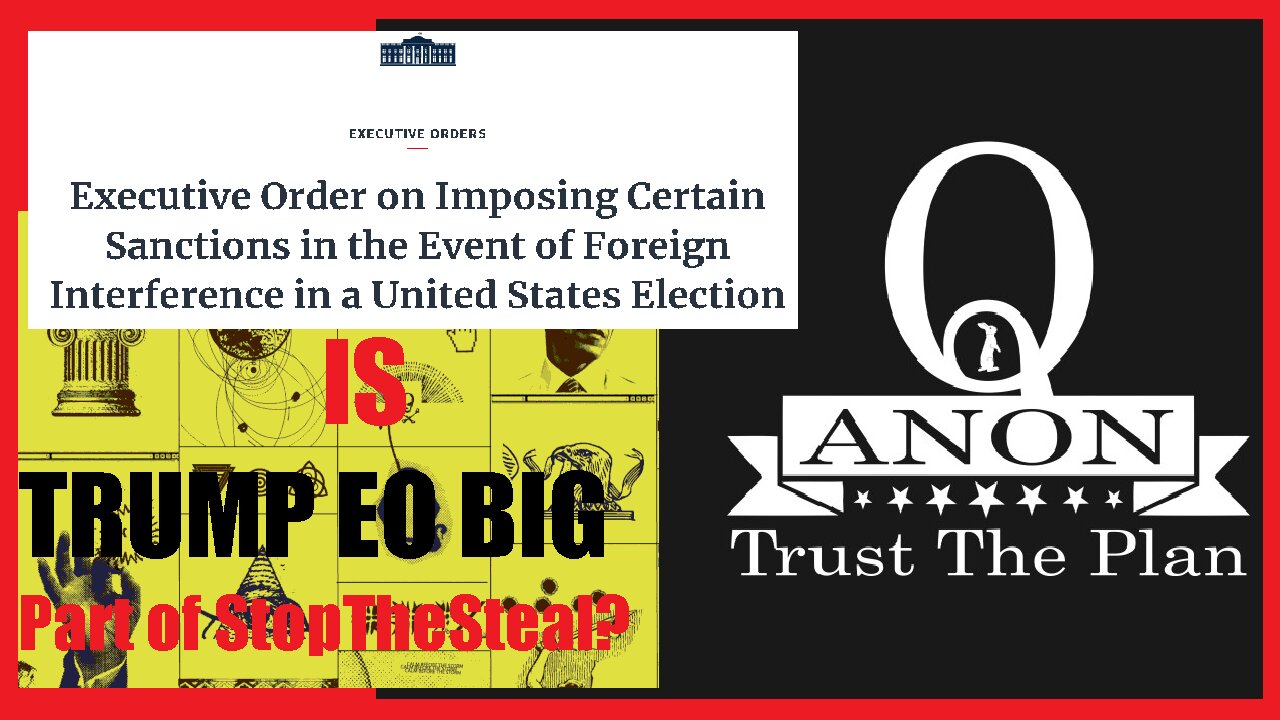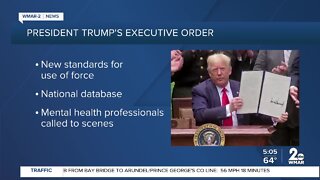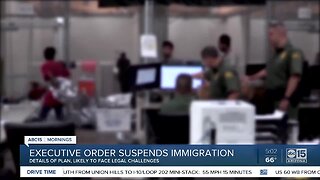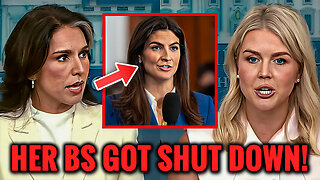Premium Only Content

'The Plan'??? Is Trump's Executive Order 13848 Going to #StopTheSTEAL?
In September 2018, President Donald J. Trump issued Executive Order on Imposing Certain Sanctions in the Event of Foreign Interference in a United States Elections. Let's Hunt for the Truth about this order and what it may reveal about this years election stealing.
On Sept. 12, President Trump signed Executive Order 13848, titled “Imposing Certain Sanctions in the Event of Foreign Interference in a United States Election.” Reporting in early August suggested that such an order was being drafted, though—as will be discussed below—it appears to have changed in some meaningful ways.
The document opens by finding that foreign persons’ “ability … to interfere in or undermine public confidence in [U.S.] elections … constitutes an unusual and extraordinary threat to the national security and foreign policy of the [U.S.],” thus triggering the president’s authority under the International Emergency Economic Powers Act (IEEPA), codified at 50 U.S.C. §1701. (For additional background on IEEPA in the sanctions context, see here. For additional background on IEEPA more generally, including surveys of past uses, see here, here and here).
Initial Determinations
Section 1 of the order establishes an interagency process for determining whether election interference has occurred. First, the director of national intelligence (DNI) has 45 days to determine—in consultation with appropriate agencies—whether “a foreign government, or any person acting as an agent of or on behalf of a foreign government, has acted with the intent or purpose of interfering in [any election for Federal office].” Second, within 45 days after receiving the DNI’s assessment, the attorney general and secretary of homeland security—in consultation with appropriate agencies—are to send the president and the secretaries of state, defense and the treasury a report evaluating two questions:
(i) the extent to which any foreign interference that targeted election infrastructure materially affected the security or integrity of that infrastructure, the tabulation of votes, or the timely transmission of election results; and
(ii) if any foreign interference involved activities targeting the infrastructure of, or pertaining to, a political organization, campaign, or candidate, the extent to which such activities materially affected the security or integrity of that infrastructure, including by unauthorized access to, disclosure or threatened disclosure of, or alteration or falsification of, information or data.
The directive also requires the report to “identify any material issues of fact with respect to these matters that the Attorney General and the Secretary of Homeland Security are unable to evaluate or reach agreement on at the time the report is submitted.”
It is worth noting that Section 1 is focused almost exclusively on disruptions to “election infrastructure,” which the order later defines somewhat narrowly:
-
 10:37
10:37
Michigan Politics
4 years ago $12.35 earnedTrump's Attorney explains election interference Executive Order
14.5K18 -
 3:26
3:26
Drew Berquist
5 years agoPresident Trump's executive order with Steve Pomper
3.37K -
 1:07
1:07
Just the News
4 years agoTrump signs executive order
84.6K6 -
 2:53
2:53
WMAR
4 years agoGovernor's executive order pushes for fresh faces at hospitals
44 -
 1:59
1:59
WMAR
5 years agoReaction to Trump's executive order
621 -
 1:46
1:46
KNXV
5 years agoExecutive order suspects immigration
130 -
 8:11
8:11
Millionaire Mentor
15 hours agoTulsi Gabbard and Leavitt DOUBLE-TEAM Kaitlan Collins in FIERY Exchange
16.1K6 -
 46:02
46:02
Coin Stories with Natalie Brunell
1 day agoWhat They’re Hiding About the Economy | Natalie Brunell with Danielle DiMartino Booth
42K13 -
 12:12
12:12
GritsGG
14 hours ago23 Warzone Wins in a Row! (Cypher AR)
90.1K3 -
 2:12:07
2:12:07
Side Scrollers Podcast
21 hours agoCULTURE SHIFT CAUSES MELTDOWNS + MASSIVE CENSORSHIP EFFORTS RAMP UP | SIDE SCROLLERS LIVE
26.8K12